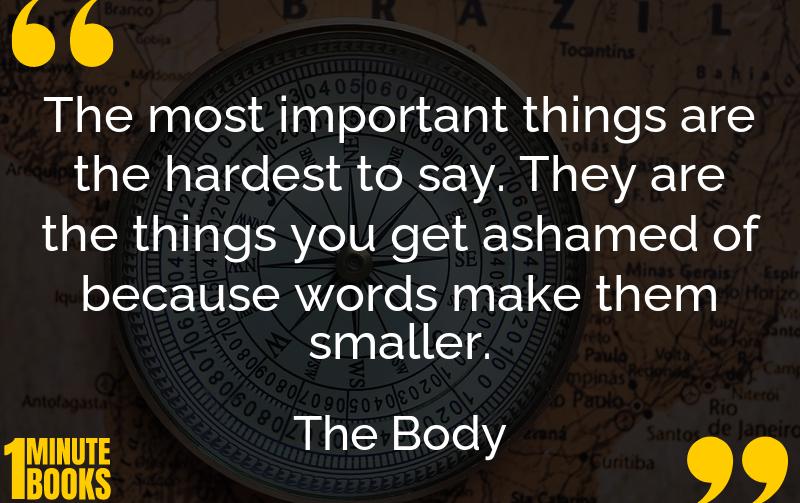
In ‘The Body’, four boys in 1960s Maine embark on a journey to find a missing boy’s body. Along the way, they confront the realities of death, friendship, and the transition from childhood to adolescence.
Main Lessons
- Exploration of the innocence of childhood and its inevitable loss.
- The journey represents a rite of passage for the boys, marking their transition into adulthood.
- The dynamics of friendship, especially the bond formed in youth, is a central theme.
- Confronting mortality: seeing the dead body forces the boys to face the reality of death.
- The struggle of growing up in a small town with limited opportunities is poignantly depicted.
- Stephen King captures the authentic voice of pre-teens, making the dialogue realistic and relatable.
- The narrative emphasizes nostalgia and the bittersweet memories of childhood adventures.
- The concept of ‘endless summer’ symbolizes the timeless joy and freedom before adult responsibilities.
- Bullying and the impact of reputations in small communities are explored through Ace’s character.
- The novella highlights the truth of personal and societal challenges in America’s rural settings.
- Reflects on the ‘death of childhood’ when one understands their mortality.
- Through uncovered truths, the story examines the complex emotions of homesickness and alienation.
- King’s non-supernatural storytelling focuses on raw human experiences and emotions.
- The prose evokes strong sensory memories, resonating deeply with readers of all ages.
- Hope is portrayed as an enduring and essential aspect of the human spirit, encouraging resilience.








